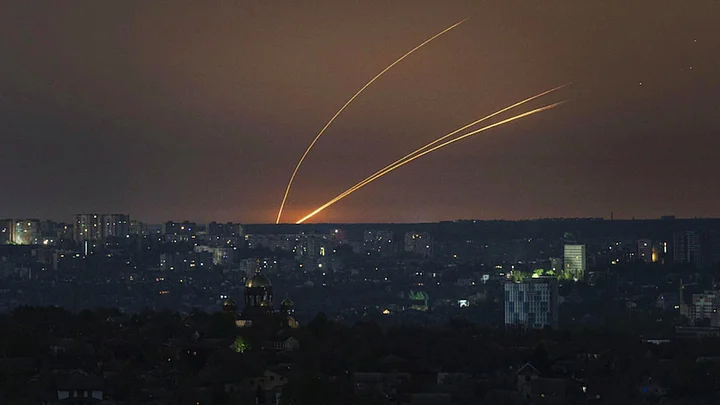The Israeli airstrikes on 26 October, a tit-for-tat response to an Iranian attack in early October, have plunged the troubled West Asian region into yet another spiral of increased tensions between two arch adversaries, with the attendant risk of a potentially dangerous military escalation. The air attack targeted surface-to-air missile sites and related facilities in Iran that, according to Tel Aviv, were used to manufacture the ordnance fired at Israel.
It is instructive that Israel did not target Iranian oil facilities or its nuclear installations. This restraint is being interpreted as a case of signalling, i.e., that while the IDF (Israeli Defence Forces) has the requisite trans-border military capability to breach Iranian air defences and attack selected targets with precision and lethality – they have chosen not to do so. Additionally, this restraint is being attributed to the US.
It is evident that the last thing the White House wants when the country is going to vote for a new President is a conflict involving Israel and Iran.
While Iran has claimed that the damage caused in Saturday's attack was ‘limited’, it has confirmed that four of its army soldiers were killed in the Israeli offensive. Iran’s Supreme Leader Ayatollah Ali Khamenei made the first public comment on Sunday and sought to play down the attack by noting that the event “should neither be minimised nor exaggerated.” He added that the Iranian military would decide on the next steps to be taken – an indication that Iran will opt for restraint and not act impulsively.
The current spike in Israel-Iran relations goes back to Hamas' 7 October terror attack on Israel last year and the ongoing war of reprisal that Prime Minister Benjamin Netanyahu launched against Palestine (i.e., Gaza). In the months that followed, Hezbollah in Lebanon joined in support of the beleaguered Palestinians and the footprint of the war expanded.
Both Hamas and Hezbollah are armed groups supported by Iran and seen as proxies of Tehran in the regional calculus. The US has designated them as terror groups, but they have considerable domestic support among the local populace given they are seen as a fierce resistance opposing Zionist oppression and the occupation of Palestine.
The sequence of attacks and counter-attacks this year began with an Israeli air strike on 1 April against an Iranian embassy building in Syria that killed many officers of the Iranian Revolutionary Guard Corps (IRGC), the organisation responsible for Iran’s external military activities. On 13 April, Iran retaliated with a missile and drone attack against the military facility that it alleged was used in the Israeli attack. Israel responded in a limited manner, and subsequently, Iran chose to remain passive and not escalate any further.
A sullen lull followed.
Further, Iranian President Ebrahim Raisi was killed in a mysterious helicopter crash in May this year, adding to the challenges facing the Iranian leadership, not least the domestic unrest over repression of women's rights and rising inflation. Tehran went into a huddle about its approach to Israel and Gaza.
July was particularly bloody, with Israel killing Hezbollah military commander Fuad Shukr in an airstrike on Beirut on 30 July. The very next day, in an audacious attack, senior Hamas leader Ismail Haniyeh was killed in an explosion in Tehran. Fingers were pointed at Israel but it did not accept responsibility for the same.
It was evident that Israel was increasing its attacks on the leadership of Hezbollah, having degraded Hamas in Gaza. In September, the IDF carried out a major strike on Beirut, which resulted in the death of Hezbollah chief Hassan Nasrallah and a senior Iranian military officer. In yet another audacious attack, Israel used pagers as coordinated explosives against Hezbollah cadres.
Pressure was mounting on Tehran to respond to what it termed as wanton assassination and aggression by Israel. Consequently, the 1 October missile and drone attacks were launched by Iran.
While it was hoped that this would end the cycle of reprisals, Prime Minister Netanyahu saw this as an opportunity to ‘press the pedal’ and the 26 October strikes were launched amidst calls for restraint. Israel has continued to prosecute its attacks on 27 October against both Hezbollah in Lebanon and Hamas in Gaza. The death toll is mounting.
Whether Iran will plan another reprisal against Israel immediately or wait and watch is dependent on multiple factors. Within Iran, there have been reports about the hardliners seeking retribution, denouncing the US for its uncritical support to Netanyahu, while the moderates want a holistic review of Iran’s investment in supporting groups like Hamas and Hezbollah.
Israel cannot prosecute the war against its adversaries without unstinted US support. Both Iran and Israel are cognisant about the implications of the outcome of the US presidential election, now merely a week away. The duration between 4 November (when voting commences) to 20 January 2025 (when the new president would officially assume office) is seen as the ‘lame-duck’ period.
The worst-case scenario for Washington is that the Iranian leadership chooses to go nuclear and Israel decides to carry out a pre-emptive strike against Iranian nuclear assets in a preventive strike. This must be avoided.
The UN Security Council is likely to meet on 28 October to review the situation. One can only hope that another full-scale war does not explode and further testify to the ineptitude of the global political leadership.
(The writer is a leading expert on strategic affairs. He is currently Director, Society for Policy Studies. This is an opinion piece. All views expressed are the author’s own. The Quint neither endorses nor is responsible for them.)
(At The Quint, we question everything. Play an active role in shaping our journalism by becoming a member today.)
